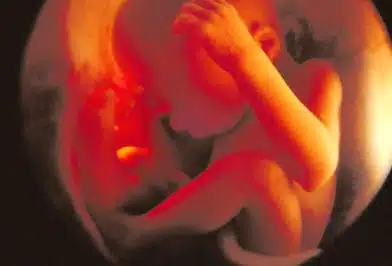A Perth researcher’s discovery of links between preeclampsia in pregnancy with lack of coordination for teenagers many years later could lead to better results for those kids.
Tegan Grace at the University of Notre Dame Australia correlated the motor skills of children at the ages of 10, 14, and 17, against their mothers’ health during pregnancy.
She found that those teenagers whose mothers had suffered preeclampsia had lower movement scores and may be more prone to developmental coordination disorder, an under-diagnosed condition thought to affect between five and 15 per cent of Australians.
Preeclampsia (also known as toxaemia) is characterised by high blood pressure and fluid retention, and is the most common pregnancy complication, affecting one in 20 births.
It is believed preeclampsia may affect the development of a part of the baby’s brain known as the cerebellum, which is responsible for the coordination, precision, and accuracy of movement, as well as language and attention.
Children with developmental coordination disorder can struggle with fine motor skills such as tying shoelaces, doing up buttons, or applying makeup.
Others have difficulty with gross motor skills including kicking, running, catching or throwing, and often avoid playing sport as a result.
But Tegan’s discovery of a link with preeclampsia will help identify children at risk of poor motor development and ensure they receive the support they need to thrive.
If movement and coordination problems are identified early, movement programs can be introduced to im
prove children’s motor skills and help them stay active throughout their lives.
Contact: Tegan Grace, University of Notre Dame, 07-9433 0239, tegan.grace@nd.edu.au





 Fresh Science is on hold for 2022. We will be back in 2023.
Fresh Science is on hold for 2022. We will be back in 2023.